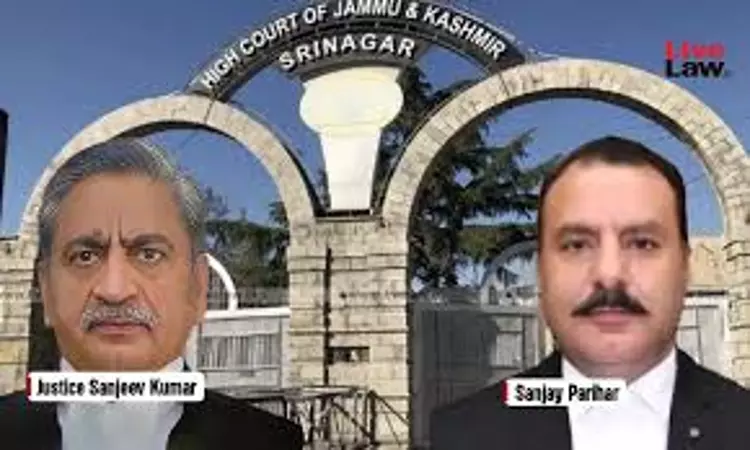- Home
- /
- High Courts
- /
- High Court of J & K and Ladakh
- /
- Principle Of 'No Work, No Pay'...
Principle Of 'No Work, No Pay' Inapplicable When Termination Is Illegal: J&K High Court Grants Back Wages To Ex-Bus Conductor
Aleem Syeed
14 July 2025 8:00 PM IST
The Jammu & Kashmir High Court has partially upheld a writ court's order directing reinstatement of a conductor wrongfully terminated by the State Road Transport Corporation (SRTC), holding that while the employee is entitled to reinstatement, full back wages cannot be awarded in the absence of pleadings regarding gainful employment.A Division Bench of Justice Sanjay Parihar and...
The Jammu & Kashmir High Court has partially upheld a writ court's order directing reinstatement of a conductor wrongfully terminated by the State Road Transport Corporation (SRTC), holding that while the employee is entitled to reinstatement, full back wages cannot be awarded in the absence of pleadings regarding gainful employment.
A Division Bench of Justice Sanjay Parihar and Justice Sanjeev Kumar modified the writ court's judgment, directing the SRTC to pay 50% of the back wages to the legal heirs of the deceased employee for the period within three months, failing which the arrears shall carry 6% interest per annum.
The court observed that "the original writ petitioner having litigated in the Courts for more than 34 years has passed away during the pendency... it would be too late in the day to send the case for re-determination."
The deceased petitioner, who was working as a Conductor/Ticket Collector with the SRTC, was terminated after it was found that 22 passengers were travelling without tickets.
An internal inquiry later gave him the benefit of the doubt, and he was reinstated in service. However, no back wages were paid for the 12-year period of his termination, leading to prolonged litigation.
The writ court had ordered reinstatement and awarded full back wages. The SRTC challenged the order before the High Court, contending that the employee had not pleaded or proved that he was not gainfully employed during the intervening period. The Corporation also cited its poor financial health as a ground for denying back wages.
The Court examined the evolving jurisprudence on back wages in wrongful termination cases, reiterating that while reinstatement is the normal rule, back wages are not automatic and depend on multiple factors such as:
Duration of service, Nature of misconduct, Financial health of the employer, Whether the employee was gainfully employed during the intervening period
The court held that “Mere fact that he filed the writ petition seeking back wages raises the presumption that the original writ petitioner was not gainfully employed,” adding that both parties failed to adequately plead on the issue of alternate employment.
However, considering the prolonged litigation and the death of the petitioner, the Court held it would not be appropriate to reopen the matter or remand it.
While noting that the SRTC's financial distress was a relevant factor, the Court cautioned against the mechanical application of the 'no work, no pay' rule, especially when termination is found to be unjust:
“The original petitioner could not work in the Corporation, for he was not permitted to do so because of termination of his services... the principle of 'no work no wages' cannot be invoked in such a case.”
APPEARANCE:
Altaf Haqani, Sr. Advocate, Ms. Asif Wani, Advocate for Petitioners
Asma Rashid, Advocate. FOR Respondent.
Case-Title: J&K Road Transport Corporation vs Shareefa & Ors
Citation: 2025 LiveLaw (JKL) 276



